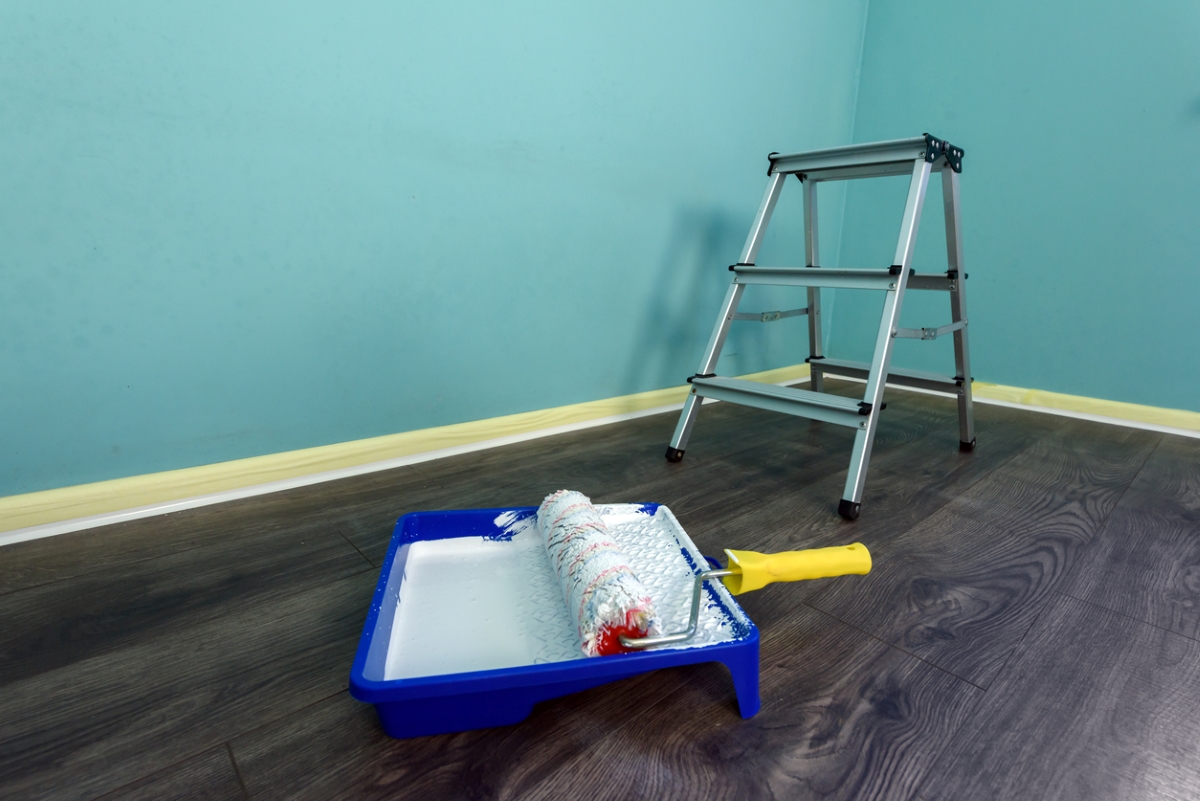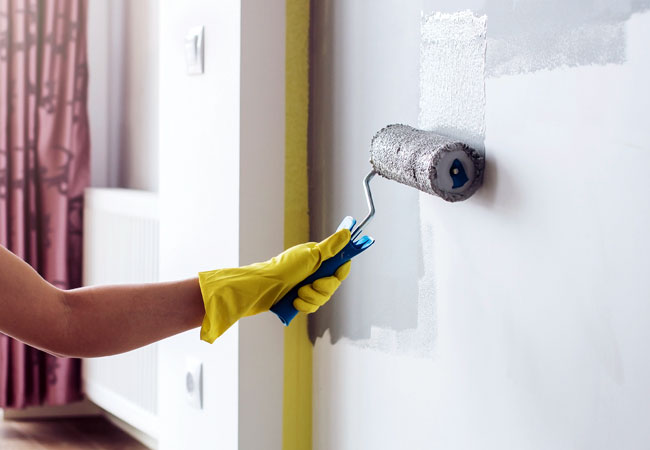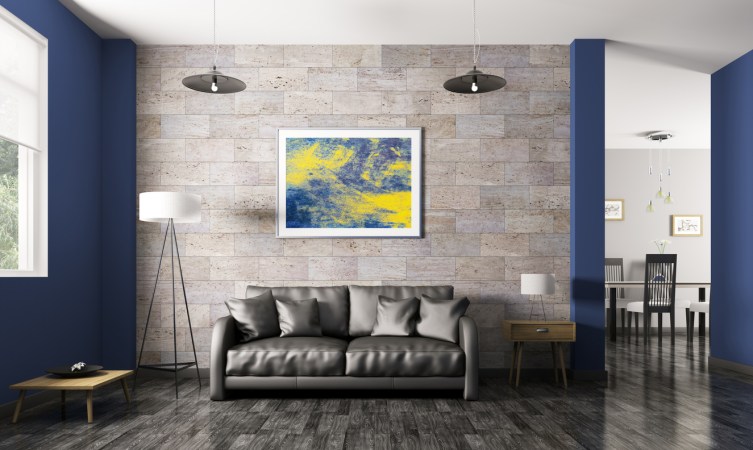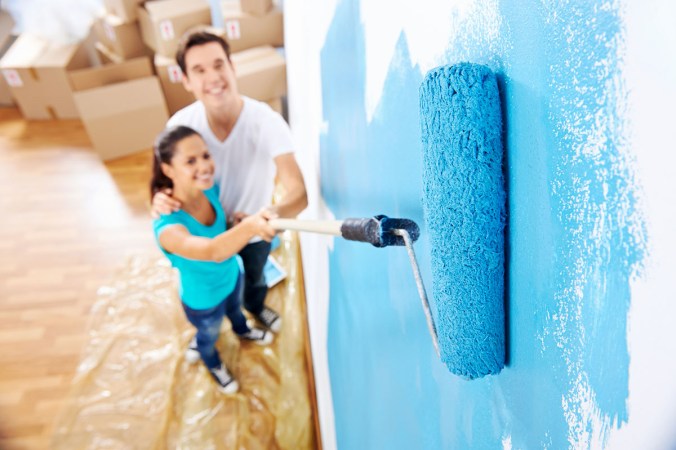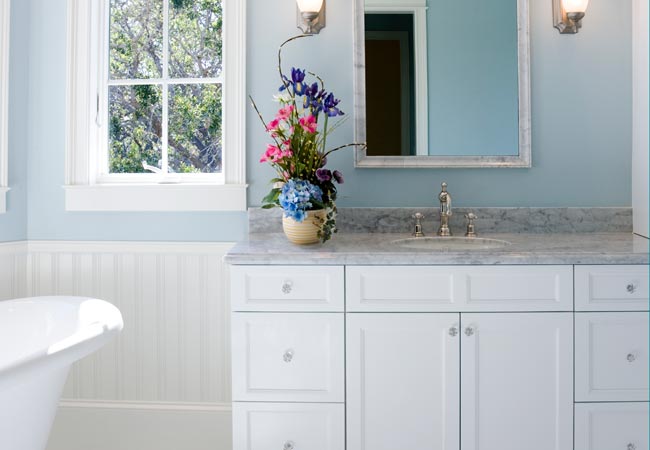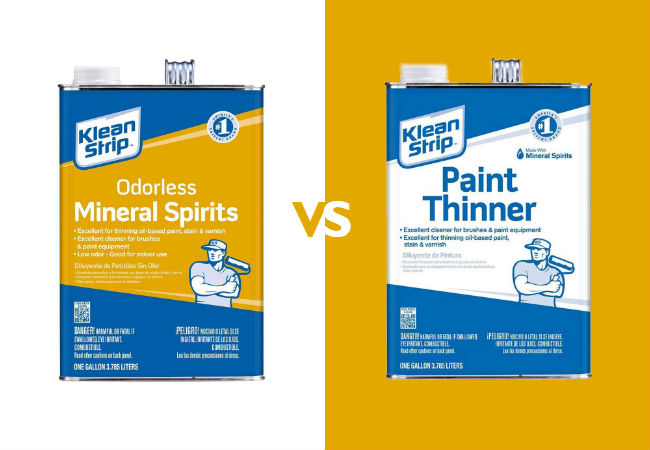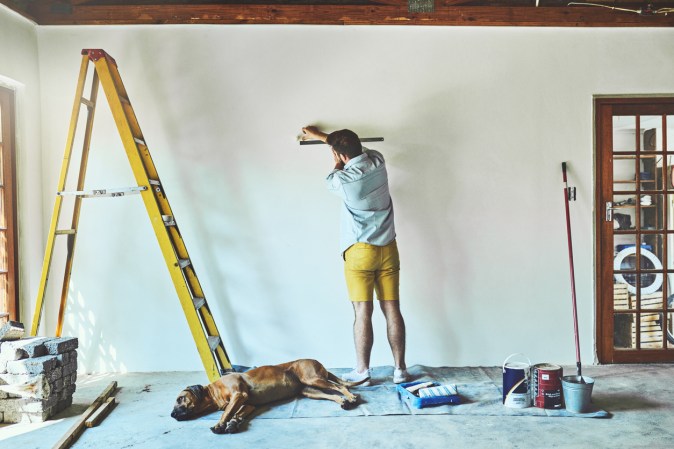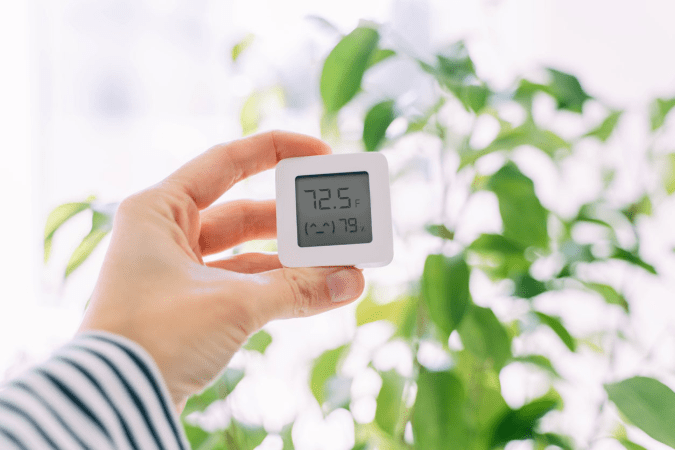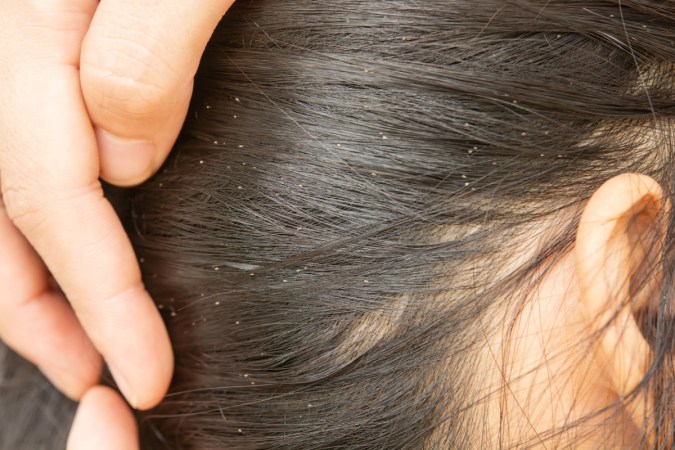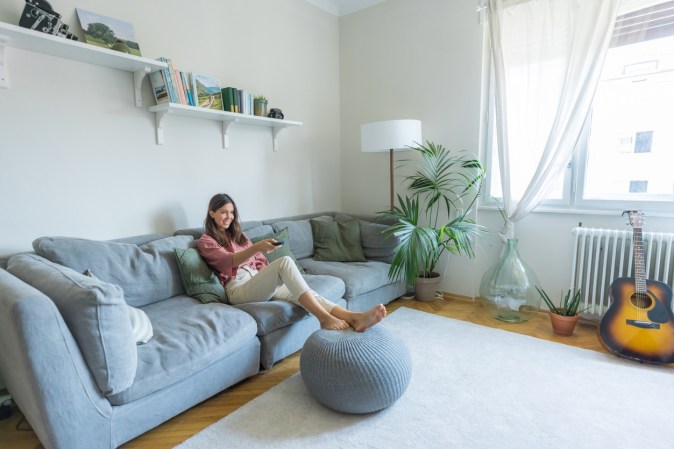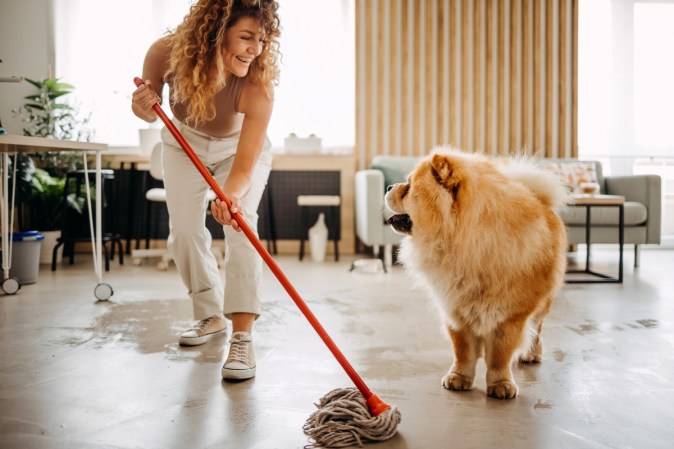We may earn revenue from the products available on this page and participate in affiliate programs. Learn More ›
Freshly painted rooms usually contain lingering odors until they fully dry. Not only are these odors not too pleasing to the senses, but they can also be harmful to your health. Young children, pregnant people, and people with respiratory illnesses are particularly susceptible to paint fume hazards. Fortunately, there are several simple measures you can take to minimize paint smells and start enjoying your home again. Learn how to get rid of paint fumes using the following tips and techniques.
Why does paint smell?
According to the Center for Disease Control and Prevention, volatile organic compounds (VOCs) are responsible for paint’s strong scent. As the paint dries, these VOCs release into the air, causing the odor. These compounds are also why many other common household items have similarly strong scents, such as adhesives, cleaning agents, and caulks.
Are paint fumes dangerous?
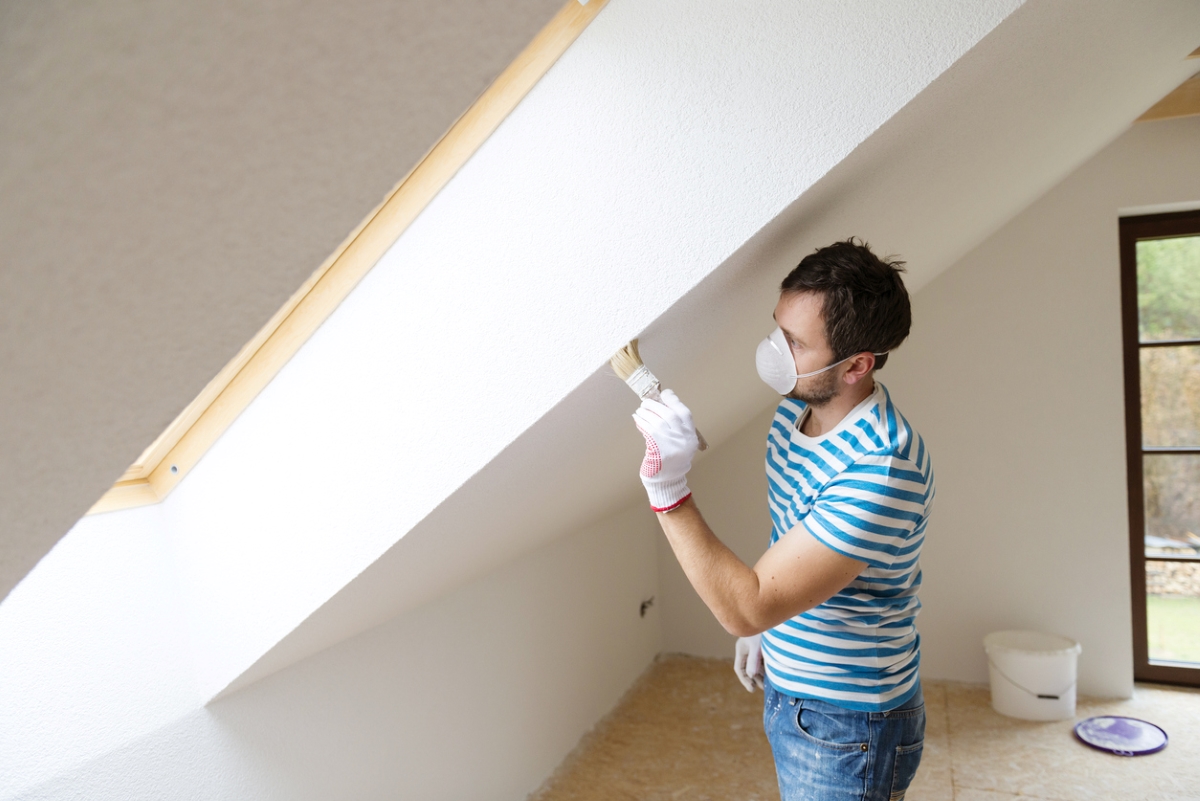
Paint fumes can contain VOCs and other organic solvents or drying oils that are potentially hazardous to your health, so it’s best to safely remove them as soon as possible. People who are pregnant or have respiratory problems, like asthma, should avoid paint fumes altogether and let someone else remove them to prevent health problems. Young children are also more susceptible to these hazards than healthy adults, so they should steer clear as well.
10 Ways to Get Rid of Paint Smell
If you’re dealing with strong paint fumes, use the following techniques to get them to dissipate.
1. Ventilate the area.
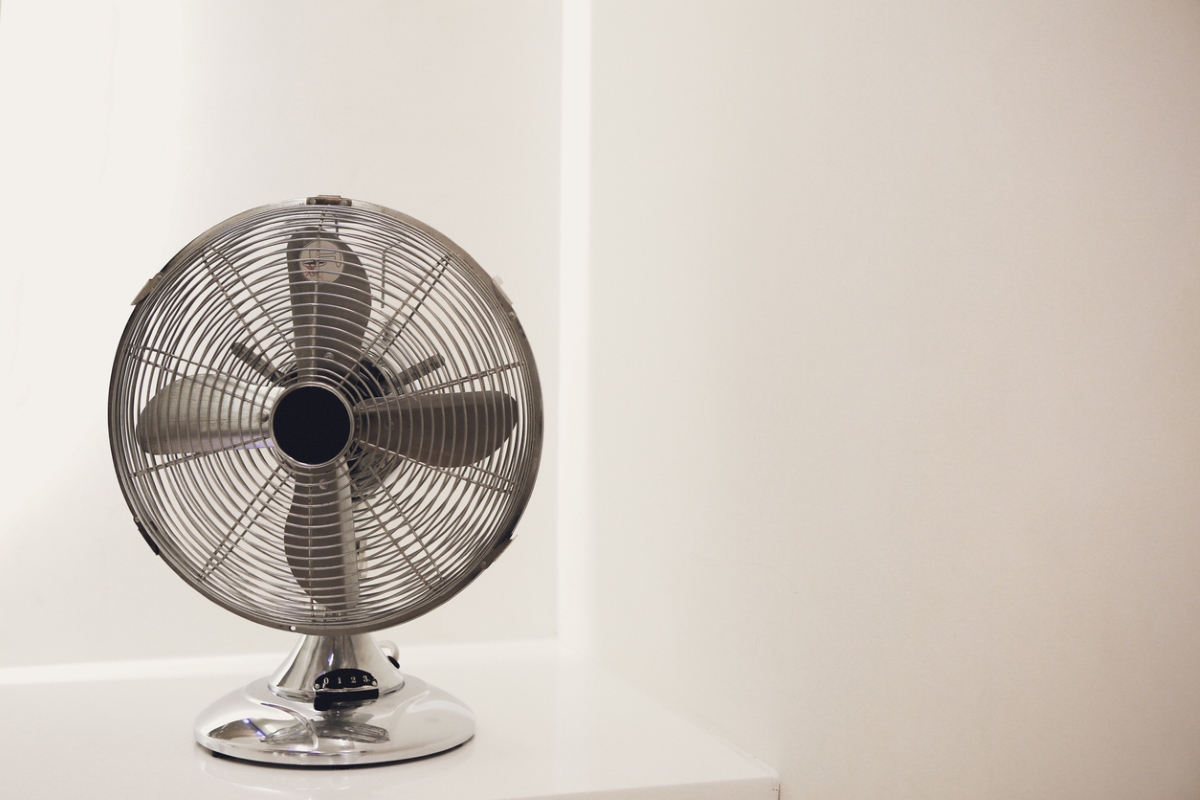
Since paint fumes can pose health hazards, your first step should be to ventilate the area by opening windows and/or turning on fans to chase away as much of the fumes as possible. Then try to stay out of the room for 2 to 3 days, if you can.
2. Use low-VOC paint when you renovate.
Volatile organic compounds (VOCs) are the primary cause of strong paint odors. Updating your space with low-VOC paint—or no-VOC paint—can really cut down on the paint smell. Low-VOC paint typically contains fewer than 50 grams of VOCs per liter, while no-VOC paint usually contains 5 grams or less.
3. Leave out baking soda.
Baking soda has a knack for absorbing scents, which is why many people keep an open box of it in their fridge, but you can also use it to absorb paint smells. Purchase a large bag of baking soda and pour it into several bowls, then place the bowls in and around the affected area overnight. If smells persist, empty the bowls and repeat the process using fresh baking soda.
4. Absorb odors with activated charcoal.
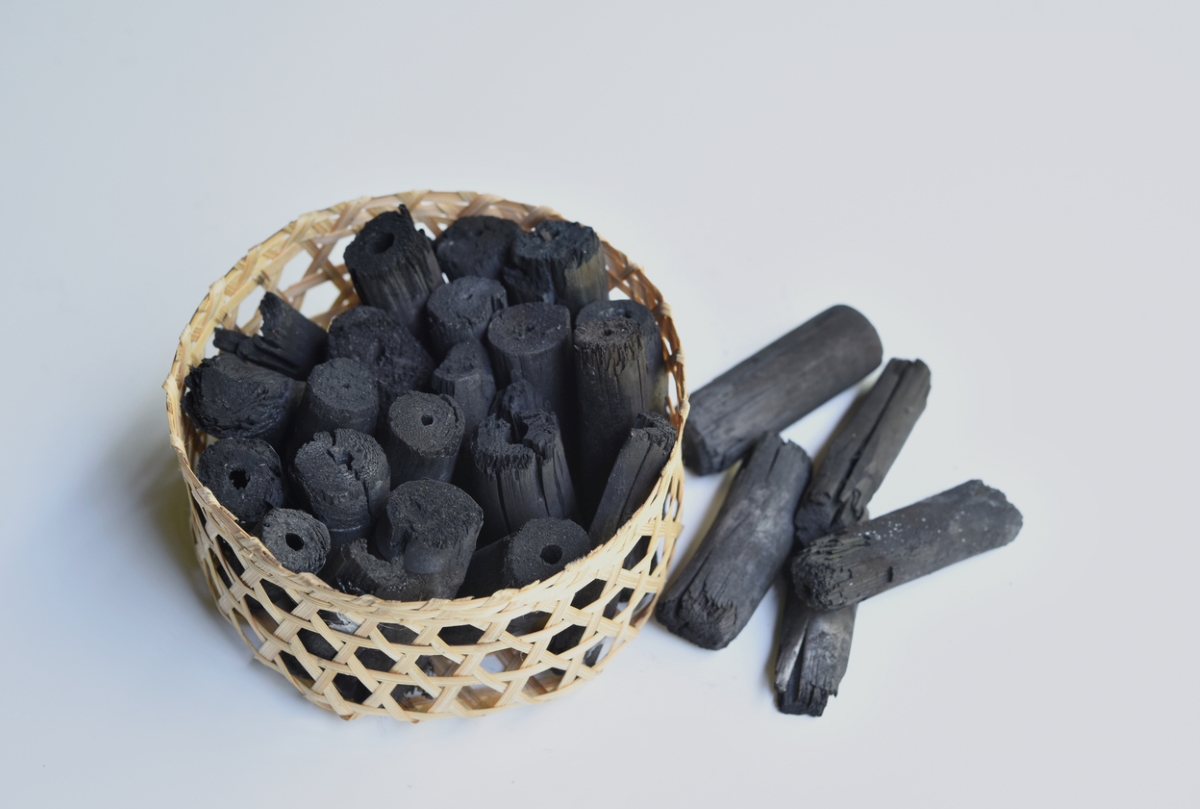
Activated charcoal, also called activated carbon, has small pores that can absorb particles, like odorous VOCs, and potentially remove them from the air. That’s why activated charcoal is commonly used in indoor air purifiers. Simply purchase a bag of activated charcoal and divide it among several bowls or mason jars. Place the jars in out-of-the-way spots around the room (out of kids’ and pets’ reach), and allow them to work their magic overnight.
5. Plug in an air purifier.
Air purifiers can help reduce odorous particles in the air while improving your indoor air quality. When shopping for an air purifier, look for ones with a HEPA filter since, according to the Environmental Protection Agency, they can remove 99.97 percent of airborne particles with a size of 0.3 microns.
6. Chop an onion.
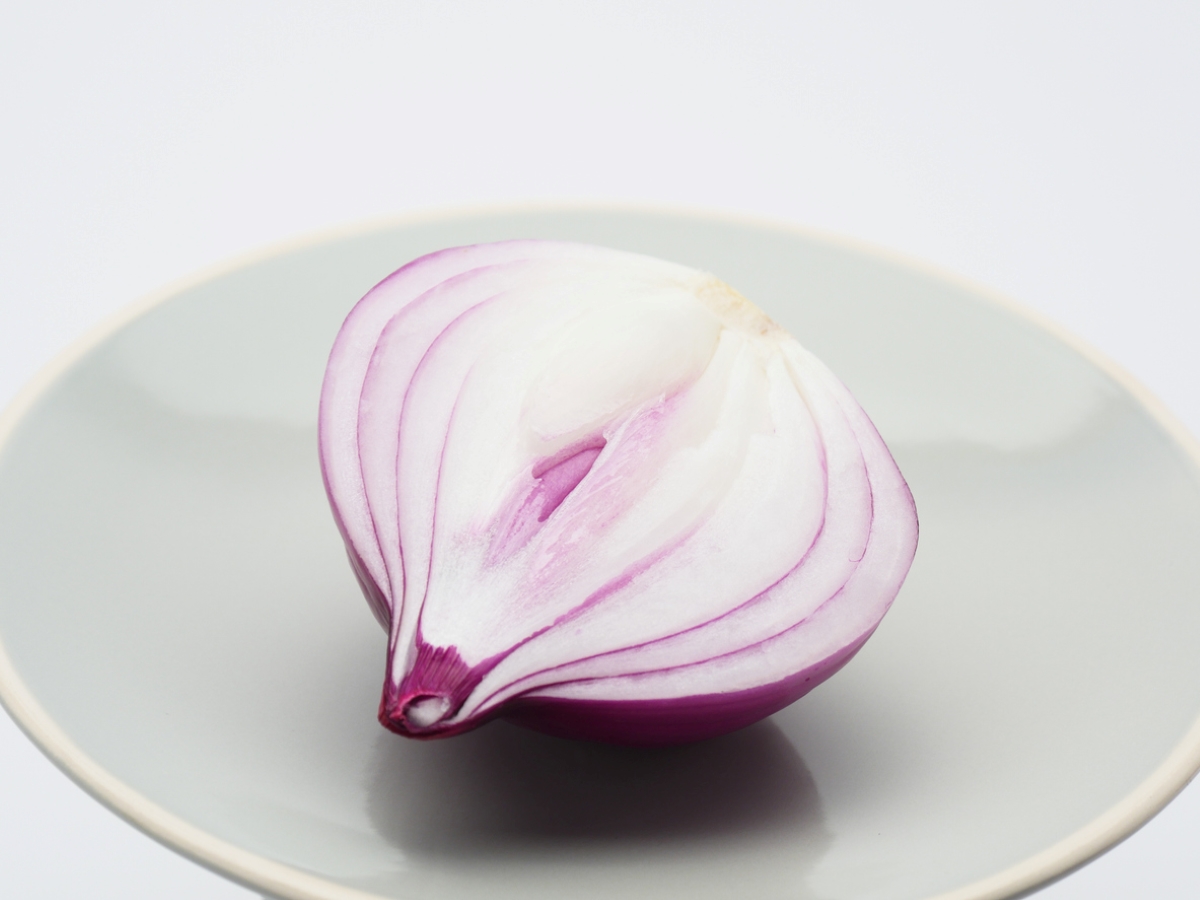
A cut onion can absorb and neutralize fresh paint odors. Simply peel a medium or large onion, and slice it in half. Place each half in its own shallow dish, cut side up, at opposite ends of the room.
If you’ve painted a room that’s larger than a primary bedroom or small living room, you may need more than one onion to notice a difference in the room’s smell. Keep pets out of the room, though, because onions are toxic to dogs and cats.
7. Keep your house cool.
Since heat speeds up evaporation, a cool room can potentially slow down the evaporation of VOCs, minimizing odors. So consider turning off the heat and opening any doors and windows to cool things down while improving ventilation.
8. Leave out lemon water overnight.
Water can absorb some paint vapors, so fill a couple of bowls with water and place them at opposite sides of the room, letting them sit overnight. You can also add some lemon to the water, which might help neutralize the odors, but at the very least can help cover up the smell.
9. Set out coffee grounds.
As is the case with activated charcoal, coffee grounds have small pores that can trap odorous particles from the air. They can also help mask any odors with their strong scent. Try spreading java grounds on two baking pans (or placing them in bowls, as with charcoal or baking soda) and positioning the vessels on the opposite sides of the room. Let them sit out overnight and repeat the process if the room still stinks in the morning.
10. Light candles.
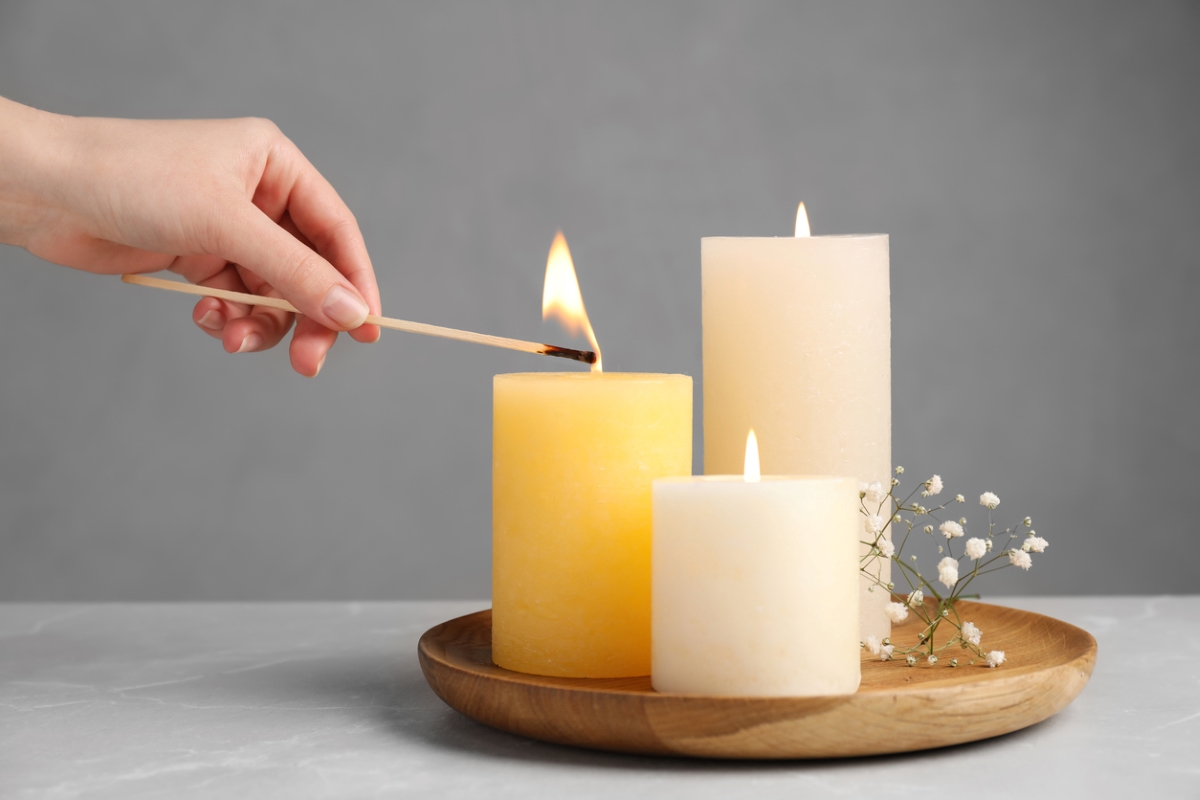
If all else fails, light some scented candles. They won’t trap or eliminate odors, but they can at least cover the paint smell in the house with more pleasing aromas.
How to Prevent Paint Fumes
There are a few measures you can take to minimize or prevent paint fumes before they occur, including:
- Painting on a cool day
- Allowing paint to completely dry between coats, since damp walls trap fumes for longer
- Turning on fans and leaving the windows and doors open, but closing all doors to other rooms
- Opting for low- or no-VOC paint
- Investing in an indoor air purifier
The aforementioned methods can help you minimize paint smells, but it’s still best to avoid any freshly painted rooms for several days, especially if you have young children, or there are pregnant people or people with respiratory issues in the house. Once you tackle the paint smells, you can learn about other ways to make your house smell fresh.
